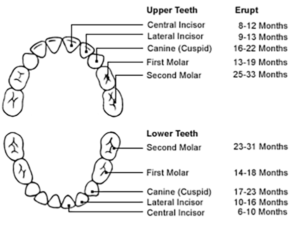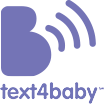Resources for New Moms
- Baby’s Development
- Tips & Resources
- Feeding Baby
- Health & Safety
- Well-Child Visits & Vaccines
- Well-Child Visit Guides
- Vaccines
- Finding Free Vaccines
- Making Shots Less Stressful
- Protect Baby from Pertussis (Whooping Cough)
- Vaccine Information for Babies
- Vaccines: DTaP
- Vaccines: MMRV
- Vaccines: Hepatitis A
- Vaccines: Hepatitis B
- Vaccines: Hib
- Vaccines: Rotavirus
- Vaccines: PCV
- Vaccines: Polio (IPV)
- Vaccines: Seasonal Flu
- Vaccines: Varicella
- Parenting
Teething Tips for Your Baby
Q:
My baby just got her second tooth. I've been brushing her teeth with water and a soft toothbrush. When should I take her for her first dentist visit?
Before her 1st birthday
Correct!
Dentists and doctors recommend you begin regular dental checkups no later than your child's first birthday.
At age 3
Incorrect!
Dentists and doctors recommend you begin regular dental checkups no later than your child's first birthday.
Teething tips for baby
When babies are teething, they may become fussy, sleepless, and irritable, lose their appetite, or drool more than usual. Diarrhea, rashes, and a fever are not normal for a teething baby. If your baby has a fever or diarrhea while teething or continues to be cranky and uncomfortable, call your child’s doctor.
Babies may get sore or tender gums when their teeth begin to cut through their gums. Gently rubbing your child’s gums with a clean finger, a small, cool spoon or a wet gauze pad can soothe them. A clean cold or frozen teething ring may also help.
Once baby’s teeth break through their gums, brush the teeth with a soft-bristled toothbrush and a little water to prevent tooth decay. Fluoride toothpaste is not recommended until a child reaches age two.
Begin regular dental checkups no later than your child’s first birthday.
Here is a picture of a baby’s mouth and about when you might expect each tooth:


